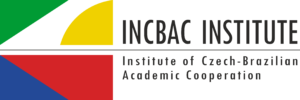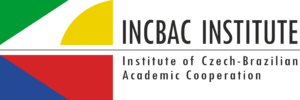- Home
- INCBAC Institute
- UNIGOU Remote
- UNIGOU Training
- UNIGOU Exchange
- UNIGOU Publications
- Unigou Posters
- Brno University of Technology
- Charles University in Prague
- Czech Technical University in Prague
- Czech University of Life Sciences Prague
- Masaryk University in Brno
- MemBrain Research Centre
- Mendel University in Brno
- Metropolitan University Prague
- Palacký University Olomouc
- Technical University of Liberec
- University of Economics in Prague
- University of Hradec Králové
- University of South Bohemia
- University of West Bohemia
- UNIGOU Papers
- Unigou Posters
- Testimonials
- Blog & News
- Contact
AUTHORS W - X
participating in the Scientific Training part of the UNIGOU Remote Program:
Soviet Union and Religion: An Analysis of the Sovietologist Discourse
Wallauer de Leão, Tales Augusto
Abstract:
Marxist thought reached its most relevant position as a “policy tool” in a State in the Soviet Union (USSR). Inasmuch as Marx considered religion “the opium of the people”, it is not surprising that it was a sensitive topic to the Union. In this context, several Sovietologists (scholars of the Soviet Union) focused on how the Soviet Union dealt with the issue. The present research intends to open up a new venue for understanding the Cold War by analyzing how the Sovietologist discourse approached religion by conferring natural predicates to the USSR. The main hypothesis is that the Sovietologist discourse constructed the subjectivity of the USSR from conditions of possibility that characterized it as inferior, expansionist, and contradictory. Following Foucault, the archeological method was deployed in order to understand how utterances on religion took place under the conditions of possibility of the Sovietologist discourse. In practical terms, the analysis considered several papers on religion that were published in the journal “Soviet Studies”, one of the most important in the field of Sovietology. After the reading of eight articles, it was possible to infer that: 1) contradictoriness is, in fact, the basis of the discourse of Sovietologists; 2) expansiveness and inferiority are present characteristics, but not necessarily central; 3) characteristics such as combativeness to religion and the Soviet inability to deal with religious issues are pivotal in the discourse.
Keywords:
View the paper:
Drug Candidates for Chagas Disease: A Mini Review on Natural Products in Brazil
Wen Ya So, Fernanda
Abstract:
Chagas disease (CD), caused by the protozoan Trypanosoma cruzi, is a neglected tropical disease that affects more than 6 million people worldwide, mainly in areas of Latin America. Currently, there is no vaccine against Chagas disease and the available drugs (benznidazole and nifurtimox) are poorly effective and have been associated with several side effects. Therefore, research initiatives to identify new lead compounds for treating Chagas disease are required. Concomitant, natural products have stood out as a source of potential bioactive compounds and Brazilian research groups have been conducting studies on the identification of new molecules. In this context, this study reviews Brazilian publications on Web of Science database in terms of natural product chemical diversity, identification of potential compounds with trypanocidal effect and characterization of hit compounds identified through phenotypic-based screening. From 2012 to 2022, fifty three papers reported four hundred and forty nine active molecules to fight different strains and life stages of the parasite. Plant derived extract, marine derived extract and microorganisms were the classes of compounds, which had the required IC50 potency and SI selectivity to be a hit compound, indicating that natural products can be an important source of potential new drugs to treat Chagas disease.
Keywords:
View the paper:
Life Cycle Assessment of Thermomagnetic Motors: A Review
Wisniewski Siqueira, Nathalia
Abstract:
In view of the increasing demand for energy and the search for sustainable alternatives to traditional sources such as fossil fuels, the waste of thermal energy in industries and the potential for converting it into other types of energy are highlighted. The importance of Life Cycle Assessment (LCA) as a tool for analyzing the sustainability of complex systems is presented, covering all stages from the extraction of raw materials to the final product. LCA case studies in thermal waste reuse systems are exemplified by research that evaluates the environmental impact of technologies such as the organic Rankine cycle and the Kalina cycle. The application of LCA to thermomagnetic motors is proposed as a gap in current research, since they also reuse low-quality thermal waste to convert thermal energy into mechanical energy, emphasizing the importance of understanding the life cycle of these devices and their environmental impact. Another important point is the relevance of LCA in analyzing innovative technologies for producing energy from waste. Finally, it is concluded that LCA is fundamental for evaluating systems that use thermal waste, such as thermomagnetic motors, and highlights its role in the search for more sustainable energy sources, helping to guide policies and practices in energy production.




